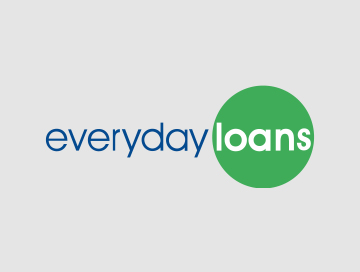Are you looking to improve your financial stability this year? Every January, millions of people across the country commit to improving their finances, hoping to achieve a greater level of stability and oversight of their money.
Today we’re covering this exciting and challenging concept. We’ll look at what pitfalls stand in your way, and how you can create a plan and a resolution that will stand the test of time and life.
Let’s get to it.
The beginning: What usually happens
When you choose to improve your financial situation, it can feel great. You are taking positive action to help yourself in the future. Unfortunately, when that initial feeling wears off, it can be hard to stay motivated to achieve your goals.
To help avoid falling into this trap, it can be helpful to keep your resolutions private. By telling others our plans before we do them, we can effectively binge on the feel-good emotions it produces – something that can lower our chances of success in the long term.
If you need to share your intentions with someone like a partner, it’s a great idea to keep it low-key and focus on what your new set of principles means for you where financial responsibility is concerned.
The real start: Committing to the cost
When we make a new resolution, it’s easy to put together a plan but you need to make sure you set aside the time to regularly do the work. Otherwise, that important financial task keeps getting pushed aside and forgotten about.
If we say to ourselves that we’re going to monitor our finances periodically and keep that information in an Excel spreadsheet, the concept of missing a week or month presents a tempting opportunity to get out of our obligation quickly. Before you know it, time has passed, and you feel like you have fallen too far behind to catch up.
In truth, any new resolution is a game of inches and a new discipline to incorporate into our lives. Financial responsibility is no exception. By setting aside time regularly, you can slowly work toward your goals.
Use whatever planning system you rely on to block out the time you will need. Doing this weekly is a great option. Sit down, retrieve your bank statement or other financial document, and go through it carefully. Doing this every week means it will never take you long to do the work that needs to be done and when you look back over a few months, you will notice a real difference.
Being realistic: It’s important
That little rush we get when we plan a resolution can trick us into setting goals that are too ambitious. This can be upsetting when you start to work towards your goal. You feel like you are sacrificing too much or there is too much work to ever get done.
To avoid this, set achievable goals and break down hard tasks into smaller chunks. For example, if you want to save £1,000, you could commit to putting aside £100 a month. That way you will meet your goal in 10 months and you will not have to sacrifice the things you love in the process. If it helps, you can think of your efforts like the interest paid out by a bank. If you put in a little money, you only get a little interest back but the more you put in, the more you get back. You may not be able to put in lots of money (or effort) all at once, but over time, it all adds up.
Your first step may just be reviewing your finances each month. This allows you to understand what you are spending money on and make a plan to save going forward. That may not seem like much but it will help you move forward without becoming discouraged.
Keeping it accessible
There’s a concept in life and in planning that is often referred to as the ‘path of least resistance. In short, it means that we’re wired as humans to prefer the easiest route forward. We can use our intelligence to overcome this, but it remains an important tendency to stay mindful of.
This is important in handling our money for a simple reason: the easier we make it to perform our task of budgeting and planning, the more likely we are to do it. And in a digital age, we can leverage any number of tools at our disposal to help make our financial goals as easy and pain-free as possible.
With this in mind, you can consider looking at a number of different tools. There are apps that allow you to allocate a certain amount of money to different purposes each month to keep you on budget. You can also set your bills on auto-pay. If you are struggling to put extra money aside, you can set up a direct debit to come out of your account at the beginning of the month. If that is too much, you can also sign up for a service that will round all your transactions up to the nearest pound and save the difference in an account. You can even sign up for notifications from your bank to help you keep better track of your spending.
And that’s all for today, folks!
Making a new resolution such as handling your finances better is a commendable and important thing to do. It’s not easy, but the tips we’ve laid out in this article may help you get there sooner rather than later.
The team here at Everyday Loans wishes you well and thanks you for stopping by our article section. See you again soon




